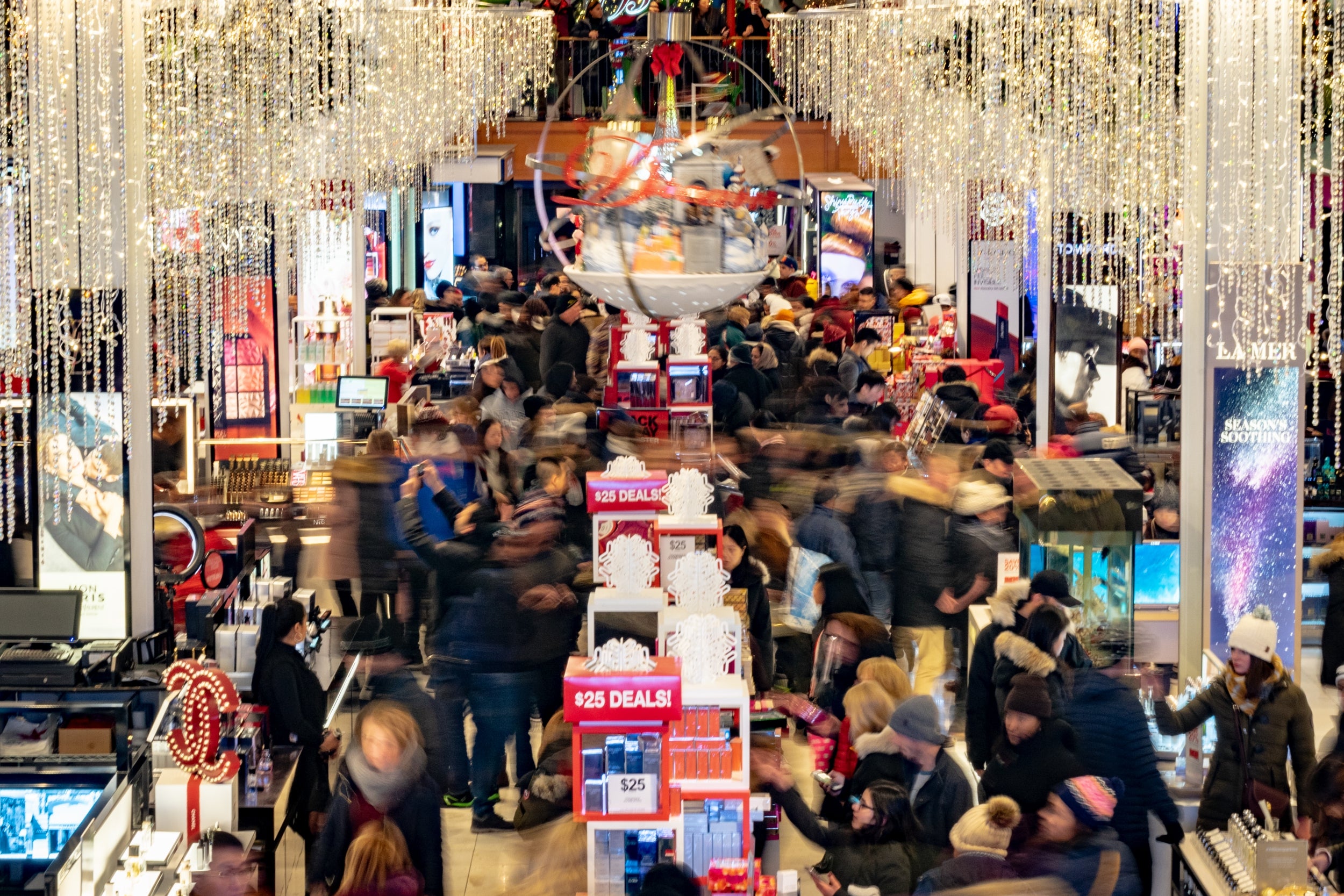Black Friday has lost some of its lustre – but the US is still the world’s dominant cultural force
Nobody can touch the American genius for creating products and services that the world’s middle classes want to buy or be part of


Black Friday is upon us. Or at least it is on the web, for you don’t have to wait until the day itself to get the wonderful deals they promise. A Huawei watch at better than half price? A cheap(er) iPhone 11? Or maybe a Ring Video Doorbell and Echo Show 5 for video monitoring? Whatever.
Of course the reality is somewhat different. In the US there may well be special deals but in the UK they are not particularly good, according to Which?, the consumers’ association. Their message is that you may well be able to buy items even cheaper a few months later. In the world of electronics this is hardly surprising, for as technology advances the price of each generation of kit does come down. That is one of the great challenges facing the manufacturers and retailers: how to you innovate fast enough to keep people buying new stuff?
So why does Black Friday, or its sibling Cyber Monday, or indeed China’s Singles’ Day have such appeal? After all, this Friday is not a holiday outside of the US, where it is the bridge between Thanksgiving on the fourth Thursday of November and the weekend.
There is a simple answer – but one that leads to a deeper and more interesting one.
The simple answer is that all cultures need celebrations and part of any such event is the exchange of gifts. Actually Thanksgiving is a family event rather than a present-giving one but it does mark the start of the Christmas gift season, which in various forms is celebrated even in countries where there are relatively few Christians, such as Japan, where they eat Kentucky Fried Chicken as festive fare.
So the rest of the world is simply adapting to an American practice. It suits both producers and consumers to have something to celebrate and this a good excuse to do so.
By why does the world follow America? That is where the story gets really interesting. The US is the world’s largest economy, to be sure but that of itself would hardly be enough. It has not managed to export its sports to any significant effect, with the partial exception of baseball and basketball. (The global top three – football, cricket, and hockey – were developed in the UK.) So what drives US success in exporting Black Friday?
The answer is that the US is the only country in the world that has developed exportable popular culture. Other countries have elements of their culture they can export. France dominates luxury goods. Interesting, by the way, that LVMH have shelled out $16bn (£12.5bn) for Tiffany & Co. Germany leads in high-end motor manufacturing, with Mercedes Benz, BMW and Porsche having cultural as well as a physical identities.
But for mass market culture, America dominates. Think Hollywood of course, but also think Facebook and the iPhone. Britain can hang in behind the US, but if British actors or writers want to go truly global, they have to get the US on side. Look at what has happened to those two British cultural icons, our royal family and Fleabag. The Crown is produced by Netflix. Phoebe Waller-Bridge has said she is “insanely excited” to be working with Amazon.
Indeed the whole burst of consumerism in China is really a tribute to the US. Alibaba, the wonderfully successful online retailer founded by Jack Ma, is in many ways a copy of Amazon. It didn’t quite invent Singles Day, but it did develop it as an online event, and this has now become the world’s largest shopping festival, bigger than Black Friday and Cyber Monday combined. This year it referenced its American roots, for it was launched by Taylor Swift.
So what happens next? I cannot see any external challenge to American consumerism. No one can touch the American genius for creating products and services that the world’s middle classes want to buy. If there to be a challenge it will come from within. Do Americans really need so much stuff? There are small signs of a cultural shift – a smaller proportion of the young having driving licences for example – but the march away from consumerism has barely begun. The young may eat less meat and drive fewer miles but they remain voracious consumers of electronic kit.
So even if the Black Friday bandwagon slows a bit, do not expect American cultural dominance to fade for a long time to come.
Join our commenting forum
Join thought-provoking conversations, follow other Independent readers and see their replies
Comments
Bookmark popover
Removed from bookmarks